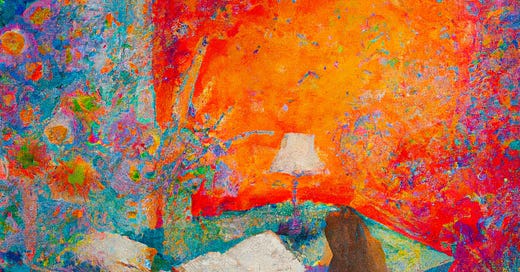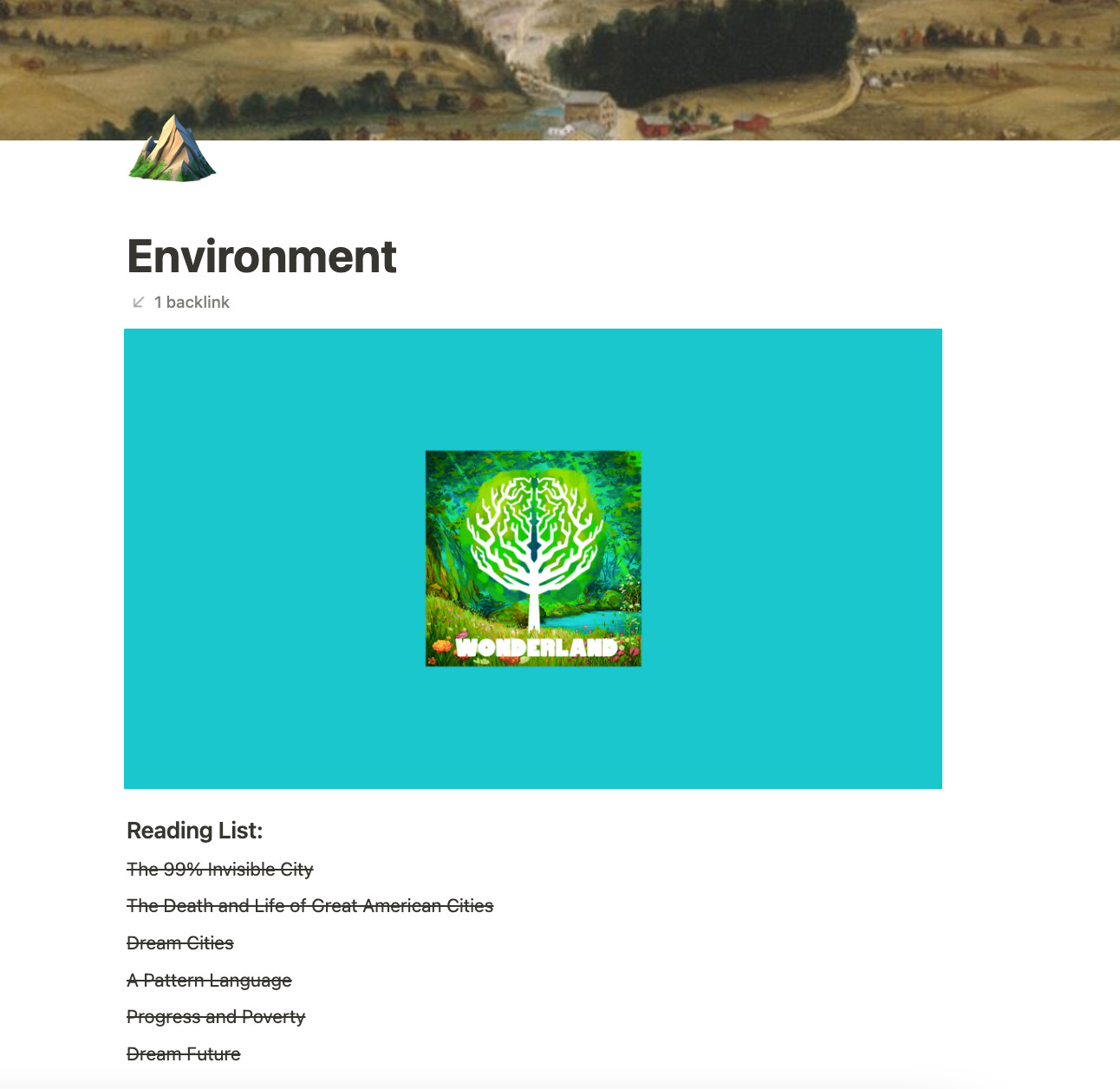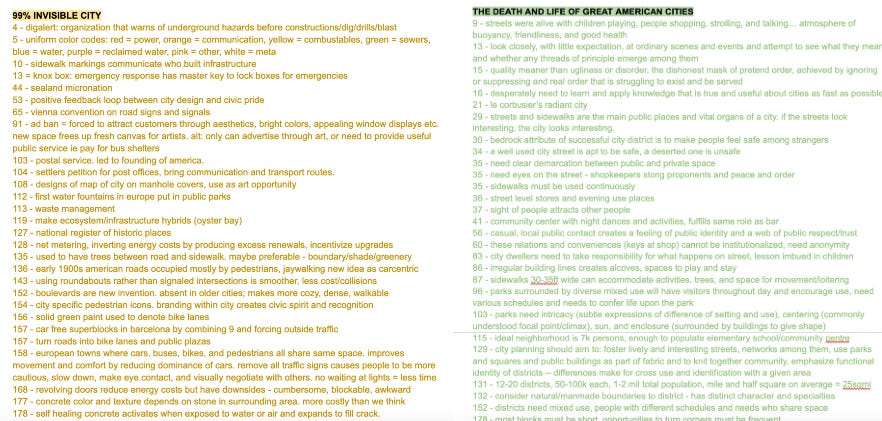this post is dedicated to my friend Shingai, whose “Principles of Systems Science” series i have been editing and would highly recommend reading.
i thought it would be interesting to write about my writing process, as this is something that he and others have often asked me out. i have very rigorous research and organization methodologies i’ve employed since high school that work without fail, and a peak behind this veil could be helpful to others.
all of my writing emerges through what Joe Norman calls a “coarse-to-fine process”—i start with the general, broadest strokes and then work my way down to a granular level. rather than writing and rewriting multiple drafts, i write once with the slow, exacting incision of a surgeon. aside from a few stylistic tweaks, everything emerges from my fingertips fleshy and fully formed. the reason for this is that i already know what i am going to say and why, all that’s left is to feel out the particulars of how.
for my July subscriber feature, as i’m about to take up my keyboard once again, i decided i would lay out the process and thought behind my methods, with the hope that this knowledge can go on to inform your own future writing and research.
Wandering is a place I share personal musings, confessions, and muses. To support my work and receive access to exclusive posts, sign up for a paid subscription.
the content
when i am in the research phase of a project, i like to collect books, articles, youtube videos, and essays and put all the resources in a central hub. these days i have a dedicated notion page for each Wonderland episode, where i will store links and names of projects i want to explore further
the process
as i read through these resources, i will annotate or write down noteworthy points of interest. if i’m watching a youtube video i’ll keep a bulleted, timestamped list of things mentioned that i want to remember and might refer back to later. i always keep a pencil with me so i can underline and emphasize parts of a text i want to return to. if i’m reading a pdf i’ll highlight the document as i go. if i’m talking to someone who is knowledgeable on the topic at hand i’ll keep track of things they mention. in my own time, as my mind wanders in the shower or while soaking up sunshine, i’ll scrawl pages of notes and diagrams for myself, all of which i keep.
the regurgitation
once ingested and digested, all of that knowledge needs to crawl back out of me and onto the page. i will painstakingly flip through every one of the books i’ve read and type out quotes or summaries of whatever has stuck out to me, along with a page number should i need to reference it later. my handwritten notes i will compile and digitize, along with any other scraps of information i’ve collected. when you’re dealing with a ton of books like i do, i’ve learned that the key to this part is colour-coding. each book or major resource gets its own colour of text, that way i can still remember the source of the information once i start working with and rearranging it.
the structure
at this point, major themes and topics have started to emerge. i still follow the three part essay structure we all learned in school. after the introduction you have a premise, an exploration, and a transformation, wrapped up with a conclusion. no matter what the topic is at hand, a persuasively written paper should start in one place and take you somewhere new. the first set of ideas you introduce lay the groundwork, the second set elaborates upon the first, enriching their scope and implications, and the final thrust drives home the unexpected consequences of these conclusions.
sometimes, if i’m unsure where i should start, i’ll imagine that i’m pitching the premise to a friend and see where my mind naturally takes me. generally we have a pretty good intuition for knowing what needs to be laid where, for certain ideas must to be established before others can be introduced.
i knew that my episode on Consciousness needed to open with being, delve into ego, and end on the divine. and the one on Justice had to start with what law is and then explore how its violators should be tried and punished. every thesis can be broken into a clear beginning, middle, and end—you take something, you look at it in this particular way, and that generates a unique outcome. this is the hero’s journey of academic analysis, and a useful tool to keep in mind.
Wandering is a place I share personal musings, confessions, and muses. To support my work and receive access to exclusive posts, sign up for a paid subscription.
Keep reading with a 7-day free trial
Subscribe to Wonderland to keep reading this post and get 7 days of free access to the full post archives.







